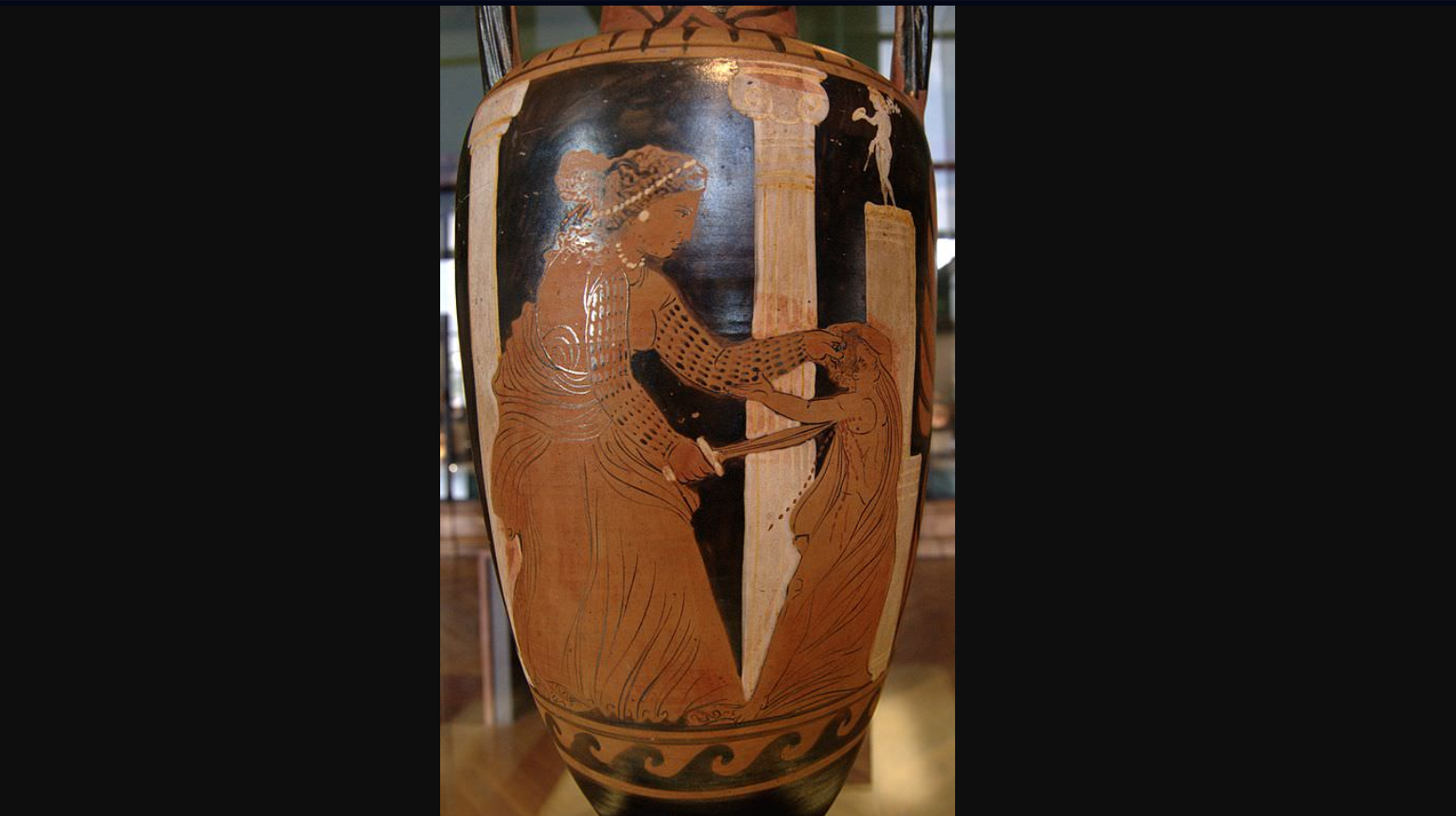2004 sword-and-sandal epic Troy got a lot right in its adaptation from Homer's original story, The Iliad. But it's also terribly inaccurate at times.
Audiences have been captivated by the story of The Trojan War for thousands of years. Adaptations and retellings of Homer’s epic poem The Iliad are certainly not exclusive to Hollywood in our modern age, but these newer versions of events are often filtered by very modern ideas.
There are several inaccuracies in the 2004 film Troy, directed by Wolfgang Peterson and starring Brad Pitt and Eric Bana. Many of them seem purposely carried out to appeal to audiences in the 21stcentury. Despite the inaccuracies, there are also a number of ways in which the film stays faithful to the original text.
10/10
Inaccurate: The Relationship Between Achilles And Patroclus
The place where Troy strays the furthest from The Iliad is the relationship between Brad Pitt’s Achilles and Patroclus. In the film, the two are portrayed as cousins, with Achilles being a mentor to his younger relative, while Homer does no mention of them being related in the source material.
9/10
They Got It Right: The Cunning Of Odysseus
Troy has been condemned by many critics for being unfaithful to Homer’s work, but one thing they did get right is capturing the intelligence of Odysseus. In the film, Odysseus is portrayed by Sean Bean—who shockingly doesn’t die at the end. He is shown convincing Achilles to come and fight for Agamemnon at Troy, and later, conjuring the idea of the infamous Trojan Horse.
The one trait that Homer made very clear about Achilles, both in The Iliad and The Odyssey, was that this character was bright, resourceful, and full of intelligence.
8/10
Inaccurate: The Time Span
The Trojan War is said to have lasted 10 years. The Greeks tried relentlessly for a decade to breach the formidable walls of Troy to no avail, forcing them to finally look for another way of getting into the city. While the film doesn’t have a clear timeline, it certainly doesn’t seem like it takes 10 years from the moment the Greeks land on the beach to the moment the Trojans cart the horse into their city.
Some might argue that years pass in the movie without the audience being explicitly told about it. But it’s clear that none of the characters seem as if they’ve aged 10 years by the end.
7/10
They Got It Right: Achilles’ Treatment Of Hector’s Body
In the film, Achilles falls to an emotional low point when he discovers that Patroclus, his “cousin,” has been killed by Hector after wearing his armor and fighting alongside the other Myrmidons. Not knowing how else to deal with his grief, he slaughters Hector and then ties his corpse to his chariot, dragging him back to the Greek camp.
The film rightly captures Achilles’ disrespect of Hector’s body, which was a grave trespass in the days of Homer, even though the desecration is worse in the original text.
6/10
Inaccurate: The Death Of Agamemnon
Agamemnon serves as the central villain of the film, so it makes sense that the scriptwriters decided to give the audience a little satisfaction by having him killed at the end. But in the original tale, Agamemnon is indeed one of the characters who survives the Trojan War. He doesn’t get a happy ending in any version of events, but the ancient works saw him lasting longer than he does in the film.
The story of Agamemnon’s life post-Troy is chronicled in a selection of Greek plays. He is eventually murdered by his wife and her lover, leading his son to seek revenge.
5/10
They Got It Right: Helen And Paris Starting The War
Helen’s role in the story of the Trojan War is pivotal, and both the original source and the 2004 film make that clear. The film might not get every detail about Helen and Paris’s relationship right, but they do accurately show the way the couple’s decisions led to the Greeks setting sail for Troy.
The film shows Helen falling in love with Paris and going back to Troy with him willingly. While some accounts portray the events this way, others show Paris abducting Helen against her will.
4/10
Inaccurate: The Fate Of Paris
The film is true to the work of Homer in that it shows Helen’s departure from Sparta, whether willing or otherwise, as the act that provoked the Greeks to go to war. While it accurately shows Paris in love with Helen, it strays from the original when it comes to the character’s fate.
In the film, Paris kills Achilles and then escapes Troy with his cousin Briseis. In Homer’s poem, Paris dies during the war after he is struck by the poisoned arrow of Philoctetes.
3/10
They Got It Right: Achilles' Withdrawal From Fighting Over Briseis
The relationship between Achilles and Agamemnon is consistently rocky throughout the film. Tensions really boil over when Agamemnon steals Briseis, the captured priestess, from Achilles. This causes the war hero to withdraw from fighting.
The source material also shows Achilles withdrawing from fighting on account of Briseis. However, the film leaves out that Agamemnon only took Briseis from Achilles because he was ordered by the god Apollo to give up his own concubine, Chryseis.
2/10
Inaccurate: Helen’s Memory Of Her Life Events
The film portrays the Paris and Helen as being in love, with their traveling to Troy being a rescue mission rather than an abduction. At one point in the film, Helen even explains that Sparta was never her home. She says that her parents sent her there at the age of 16 to marry Menelaus.
Although only a minor detail, this is inconsistent with the original version of events. Helen’s parents were the King and Queen of Sparta. She was already Helen of Sparta before she married Menelaus.
1/10
They Got It Right: Hector’s Funeral
The film is faithful to the way Achilles savagely treats the corpse of Hector after he kills him. It is also faithful to the events that come just after, also regarding Hector’s body. King Priam of Troy sneaks into the Greek camp (although in the epic poem he is escorted by the god Hermes). There, he begs Achilles to let him take Hector’s body and bury it.
In both versions of events, Achilles is touched by Priam’s plea and allows him to take Hector’s body and hold a proper funeral. The fighting is put on hold to allow the funeral to take place.
Source: screenart


















